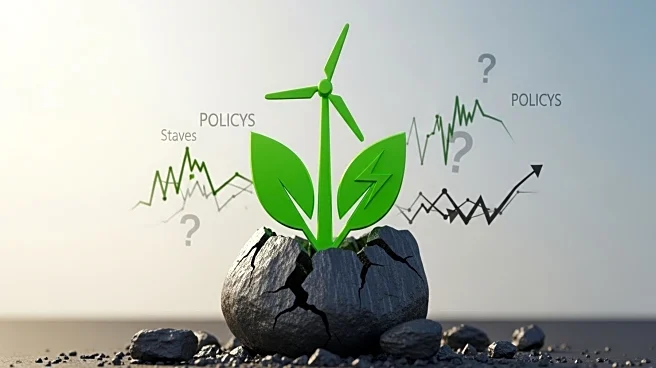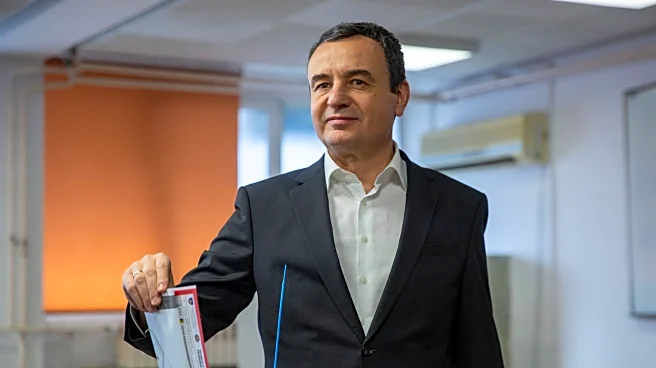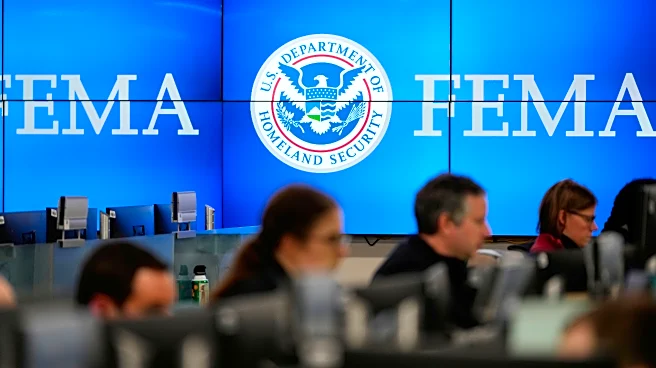What's Happening?
Industry executives have warned that Asia's push for clean energy is at risk due to ongoing fossil fuel subsidies and unstable policy directions. At the APPEC conference in Singapore, executives highlighted the cancellation of renewables auctions and subsidies to the fossil fuel industry as major obstacles to green investment growth. Lawrence Wu, CFO for EDP Renewables, emphasized that coal subsidies and the use of energy as a political tool are significant barriers. Despite efforts to expand renewable energy projects, policy inconsistencies remain a challenge, as seen in Taiwan and India where renewable energy tenders have been canceled. The demand surge from data centers is also contributing to increased power consumption, not necessarily from renewable sources.
Why It's Important?
The continuation of coal subsidies and policy instability in major Asian economies like Indonesia and India could hinder the global shift towards renewable energy. This situation poses a threat to international climate goals and could impact global energy markets. The reliance on coal to maintain low retail power tariffs and the political use of energy policies could slow down the transition to cleaner energy sources. The challenges faced by renewable energy companies in Asia highlight the need for stable and predictable policies to foster investment and development in the sector.
What's Next?
Executives are calling for predictable long-term policies and timelines to reduce financing costs and encourage investment in renewable energy. Companies like EDPR are focusing on markets with more stable risks, such as Japan and Australia, to drive down costs and ensure project development. The industry is likely to continue advocating for policy reforms to support the growth of renewable energy and reduce reliance on fossil fuels.











